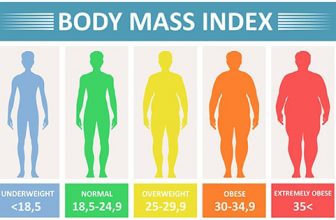
If you’re a parent, there’s a good chance you’ve Googled something like “does vitamin C help kids grow taller?” — maybe late at night, maybe after noticing your kid seems a little shorter than their classmates. You’re not alone. Height can be this strange blend of pride and panic in parenting — and trust me, I’ve been there. I’ve stared at the CDC growth charts, wondering if I missed something in my kid’s lunchbox that could’ve made a difference.
Lately, Vitamin C has been popping up in parenting forums and health blogs — some swearing it’s the missing link for growth. Others calling it another overhyped myth. So what’s the real deal?
Let’s unpack this, step-by-step — from how height works to whether vitamin C has any say in it, and why it’s become such a hot topic in American households (especially post-pandemic, when immunity and nutrition got a huge spotlight). I’ll also talk about what I personally use with my own kids — like NuBest Tall, one of the height growth supplements I’ve tested over the years.
The Basics of Height Growth: What Actually Affects How Tall Your Kid Gets
Here’s the thing — height is mostly genetic, but nutrition? It plays a much bigger role than most people think. In fact, according to the NIH, up to 20% of final height can be influenced by environmental factors — and yes, that includes what you feed your kids.
So what determines height?
- Genetics: If both you and your partner are short, your child’s max height potential will likely reflect that — but not always.
- Hormones: Growth hormone (GH) is the key driver of height. It’s what kicks in big time during the adolescent growth spurt.
- Nutrition: You need the right building blocks. That includes protein, calcium, vitamin D, zinc, and yes — vitamin C.
One common mistake I see? People forget that bones grow from cartilage, and cartilage is largely made from collagen — which brings us right to Vitamin C’s role.

What Is Vitamin C, Really?
Vitamin C (aka ascorbic acid) is one of those vitamins we all know we need, but most of us couldn’t actually explain what it does. So here’s the quick rundown:
- It’s a powerful antioxidant, protecting cells from damage.
- It boosts the immune system, which is why you see it in every “stay healthy” supplement.
- It helps your body absorb iron — which is key for energy and oxygen delivery in growing kids.
- Most importantly for height? It’s essential for collagen production — the stuff that makes up skin, cartilage, and bone matrix.
That last one is where things start to get interesting.
How Vitamin C Impacts Bone and Tissue Growth
Let me put it this way — without enough Vitamin C, your child’s bones can’t form properly. You need collagen to build the scaffolding of the bones, and you need healthy collagen for bone density and structural integrity.
Here’s how it works, simplified:
- Vitamin C → collagen synthesis
- Collagen → supports cartilage + bone tissue
- Healthy bone matrix → growth during adolescence
Vitamin C also supports osteoblasts — the cells that build bone. And it works alongside calcium and vitamin D, which means it’s not acting alone.
So while it won’t magically add 5 inches, a deficiency can definitely stunt growth or delay bone development. That’s why I always say: it’s not about using Vitamin C as a growth booster — it’s about not letting your kid miss out on what they’re already genetically set up to achieve.
What Do Studies Say? Is There Data Linking Vitamin C and Height?
I dug through NIH data, CDC growth studies, and journals like Pediatrics and AJCN, and here’s what’s clear:
- Kids with adequate Vitamin C intake tend to have stronger growth trends on growth charts.
- A 2021 study published in the American Journal of Clinical Nutrition found that children with higher Vitamin C intake had improved bone mineral content over a 2-year period.
- Another Harvard Health summary linked long-term vitamin deficiencies (including C) with suboptimal height trajectories — especially in lower-income US populations.
The takeaway?
Vitamin C won’t make your kid grow taller than their genes allow, but without it, they might not reach their full potential.
That’s a subtle but powerful distinction.
How Much Vitamin C Do Kids in the U.S. Really Need?
Here’s what the USDA recommends as the RDA (Recommended Daily Allowance):
| Age Group | Vitamin C (mg/day) | My Tip |
|---|---|---|
| 1–3 years | 15 mg | A few strawberries will do the trick. |
| 4–8 years | 25 mg | Half an orange covers this. |
| 9–13 years | 45 mg | Add a kiwi or red pepper. |
| 14–18 years | 65–75 mg | One glass of fresh orange juice works. |
Now, here’s my personal rule: food first, supplements second.
But let’s be real — some kids are picky eaters. If you’re resorting to gummy vitamins or a daily supplement like NuBest Tall, that’s okay. Just make sure the total intake doesn’t exceed 500mg/day, especially with supplements, to avoid stomach issues.
Best U.S. Food Sources of Vitamin C for Kids (and the Real-Life Options I Use)
Here’s what I keep stocked at home (and yes, I rotate based on what they’ll actually eat):
- Florida oranges – reliable, sweet, packed with C.
- Red bell peppers – my sneaky stir-fry add-in.
- Welch’s Fruit Snacks – fortified with Vitamin C and kid-approved.
- Emergen-C packets – for the flu season or travel.
- Whole Foods cold-pressed OJ – pricey, but feels worth it.
- Minute Maid juice boxes – school-lunch friendly.
I also add chewables if we’re traveling or during growth spurts — and sometimes, a height support supplement like NuBest Tall. Why? Because it combines Vitamin C, Calcium, Collagen, Zinc, and herbs like Poria and Eucommia. I’ve used it during my son’s peak growth window (around 13), and saw positive results — alongside proper sleep and sports, of course.
Final Thoughts: Can Vitamin C Alone Make You Taller?
No. And anyone promising that is overselling it.
But here’s what I’ve found in over a decade of studying child development and growth: Height is like a complex puzzle, and Vitamin C is one important piece. You need the right nutrition, sleep, physical activity, and yes — genetics on your side.
So what works?
- Make sure your child hits their daily Vitamin C needs
- Prioritize whole foods with C over sugary supplements
- Use a comprehensive height supplement like NuBest Tall if your pediatrician agrees
- Focus on overall health — not just height
You can’t rewrite your child’s genetic code — but you can make sure they’re not shortchanged by nutrient gaps or poor lifestyle habits. And sometimes, that’s what makes all the difference.
One last note from me: I used to worry constantly about my kid’s height. But what I’ve learned? Focusing on overall health brings the best outcomes — and the peace of mind is worth more than a couple of extra inches.
Now, go check your pantry. Maybe it’s time to swap that soda for some fresh citrus.
If you’re considering a height growth supplement, I suggest starting with NuBest Tall and tracking progress over 3–6 months. Combine it with good sleep, consistent meals, and physical activity. And always talk to your pediatrician before starting.






